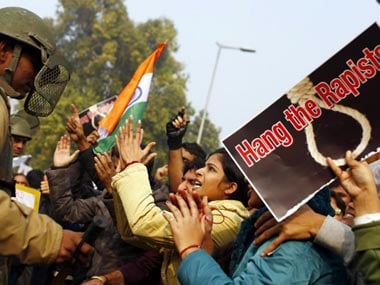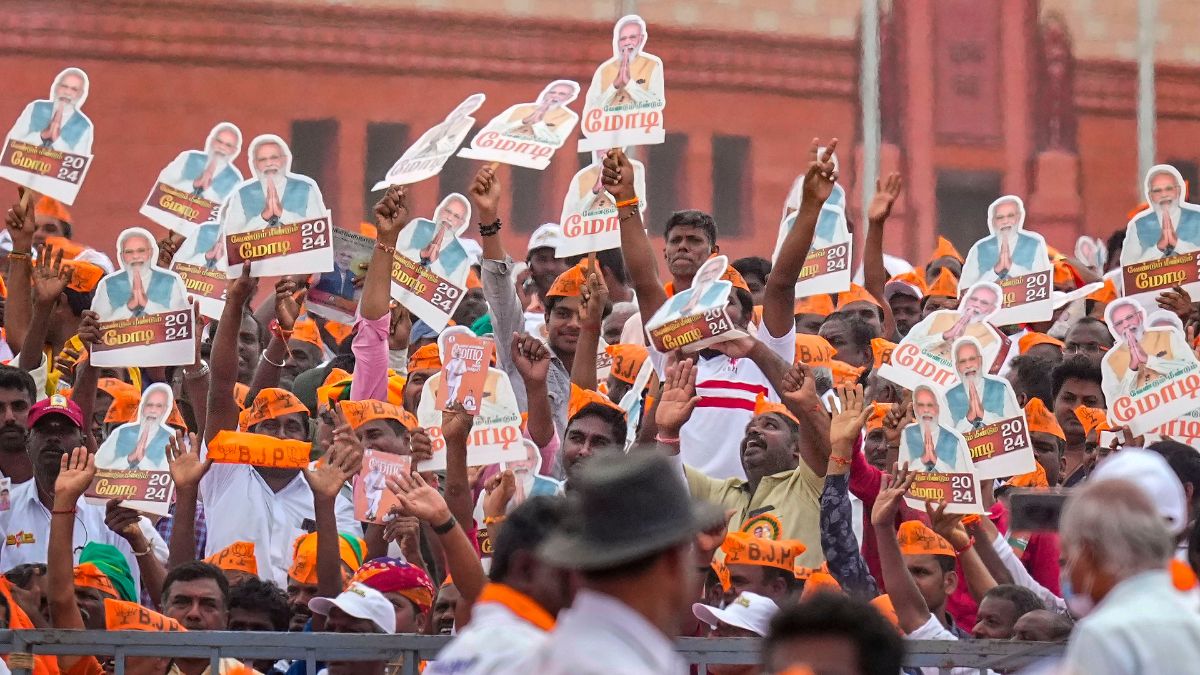Our blood boils when we hear about the brutal gangrape of a minor and doctors report that bits of candle and a small bottle were found shoved inside her bleeding vagina. We demand the instant resignation of Delhi police commissioner Neeraj Kumar.
He makes a valid point by saying he won’t resign because his resignation won’t change the system. He was correct in asking journalists whether their editors would resign for mistakes made by reporters. Last heard, he continues to be the Delhi police commissioner.
 Whether it was the five-year-old’s rape or the gangrape of a 23-year-old girl in a moving Delhi bus four months before that, in both the cases, the lower-level police officers had failed to perform their duty. In the minor’s rape case, the station house officer and a sub-inspector had failed to pursue the missing complaint while in the gangrape case, police constables were also held guilty of professional lapses which gave a free hand to the rapists.
Whether it was the five-year-old’s rape or the gangrape of a 23-year-old girl in a moving Delhi bus four months before that, in both the cases, the lower-level police officers had failed to perform their duty. In the minor’s rape case, the station house officer and a sub-inspector had failed to pursue the missing complaint while in the gangrape case, police constables were also held guilty of professional lapses which gave a free hand to the rapists.
As is continuing to happen in all our towns and cities even today, buses and other vehicles which ought to be grounded for the violation of various rules are being allowed to ply freely by the police resulting in various crimes and accidents. Innocent victims are continuing to lose their lives - sometimes brutally as in the rape cases - because the lower police won’t register or pursue a missing complaint; will allow vehicles to over-speed; or carry steel rods and other cargo hazardously and kill people as happened in a recent accident in Noida.
In most of such cases, a few constables and sundry lower-level officials are suspended and a probe ordered, but this does not dent or improve the policing system in any way.
It wouldn’t be wrong to say that the heart and soul of police reforms in India revolves around the issue of police transfers which are controlled by politicians. This issue is under the spotlight in Maharashtra currently after a circular was issued last month with the Home Department taking away the power of promoting sub-inspectors from the state Director General of Police (DGP).
Last year, the Maharashtra government had withdrawn the DGP’s authority to transfer police officers and assistant police inspectors and handed over this power to the Chief Minister and the Home Minister. The latest move led to a protest from former chief secretary DM Sukhtankar and former police commissioner Julio Ribeiro and Satish Sawhney who met and sought Chief Minister Prithviraj Chavan’s intervention against “excess political interference” in police transfers and promotions.
The vociferous protests finally led Patil to say on Friday that he would consult the cabinet for a “permanent solution”, such as amending the Maharashtra Government Servants’ Regulation of Transfers & Prevention of Delay in Discharge of Duties Act, 2005. Hopefully, such a move would restore the DGP’s authority and powers over transfers and promotions.
As is well established, a strong nexus exists between the politicians and the rank and file of the police holding the public at large to ransom. Politicians in power always want sub-inspectors, inspectors and IPS officers of their choice at the police station level or the headquarters.
These officers are not only rewarded with plum postings and transfers but also allowed to be corrupt in exchange for doing various favours for the politicians in power. This would mean casting a blind eye to various illegal and criminal activities in their jurisdiction and going soft on lumpen elements, goondas and extortionists who are often patronized by politicians to establish their mini-empires and maintain vote banks in the slums. The impotency of the police during the Delhi 1984 riots in which more than 2,000 Sikhs were murdered, the 1993 Bombay riots and the 2002 Godhra riots, was a direct result of the strong nexus between politicians and unscrupulous elements in the police force.
If the police-politician nexus is found running smoothly and no major rioting or crime breaks out such as the Delhi rapes, then there is peace in general and all is hunky-dory. The public has willfully accepted corruption in the police force as an inherent right of that department and so the constabulary is offered petty bribes- a fifty rupees note here and a hundred rupees there- even before they ask for it.
With a well-oiled ‘hafta’ system in place - where various business establishments pay monthly bribes to the police, which is shared with politicians - it is but natural that the rank and file of the police will reach out to politicians and bribe them for coveted postings where they can make more money. In such an environment, who would care for professionalism? And what systemic changes can an honest and upright police officer bring about while demanding that the police should act promptly and diligently when a serious complaint reaches a police chowky or a station?
No police chief or a DCP can run his department efficiently if his subordinate police officials know that his boss is powerless when it comes to deciding his transfer or promotion and that it is a minister or a powerful politician who calls the shots. Obviously, his loyalty would then lie with the politician and not with his superior who would expect him to work diligently.
The 2002 report of the Parliamentary Standing Committee on Home Affairs said it bluntly that the police force is “politicised and politically polarised” as it had “become a pawn in the hands of its masters. In return, the policemen get political patronage, which has become essential for their survival.”
Following adverse comments by the Shah Commission on the misuse of the police by the government during the Emergency, the National Police Commission was established to suggest reforms. However, none of its recommendations to professionalise the police force, prevent arbitrary transfer of officers and introduce transparency were implemented.
The absence of strong policing at the grassroots in India is what makes it possible for some politicians, criminals, anti-nationals and anti-socials to play havoc with social order and spread terror in society. On the other hand, a professionalised police force would be expected to go to the root of the crime and arrest whoever needed to be arrested, howsoever big and irrespective of his caste, community or religion.
A serious genetic deficiency of the Indian police system lies in the Police Act of 1861 (in the wake of the Sepoy Mutiny of 1857) introduced by the British rulers which gave complete control over the police to the executive rather than make the police “accountable to the community …” This has remained as such since then.
The move by the Maharashtra government to seize the right to transfer and promote police officials also needs to be seen in the context of the 2014 general and assembly elections in Maharashtra when the ruling party would want pliant police officials to do their bidding.
Brutal rapes of minors and young women, and other chilling crimes will not stop unless a culture of strong policing is established at the grassroots. That can happen only when the police force is thoroughly professionalised and upright police officers given the authority to make systemic changes.
The Maharashtra government must restore the right to transfer and promote police officials to the DGP and take whatever steps are necessary to professionalise the police force.
)
)
)
)
)